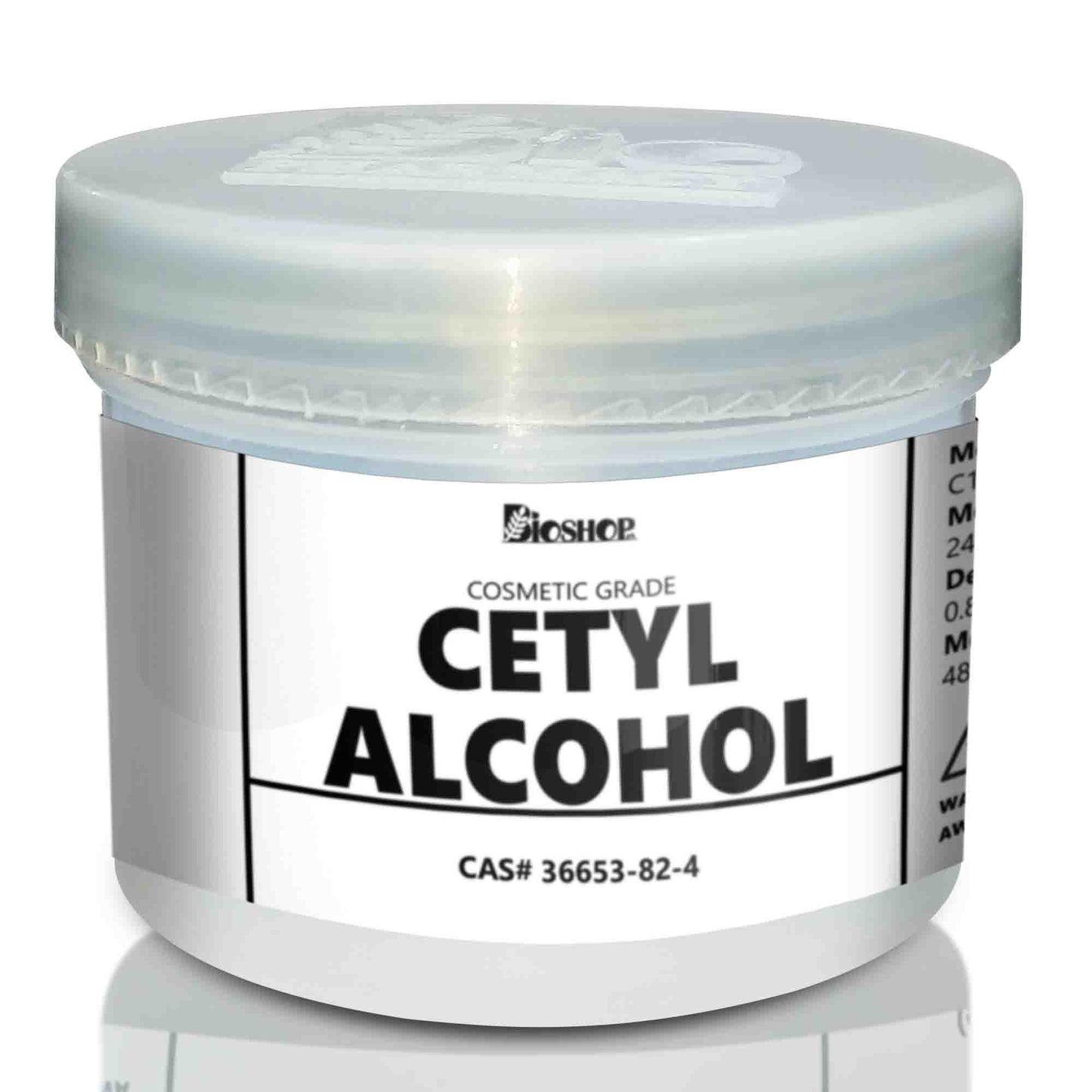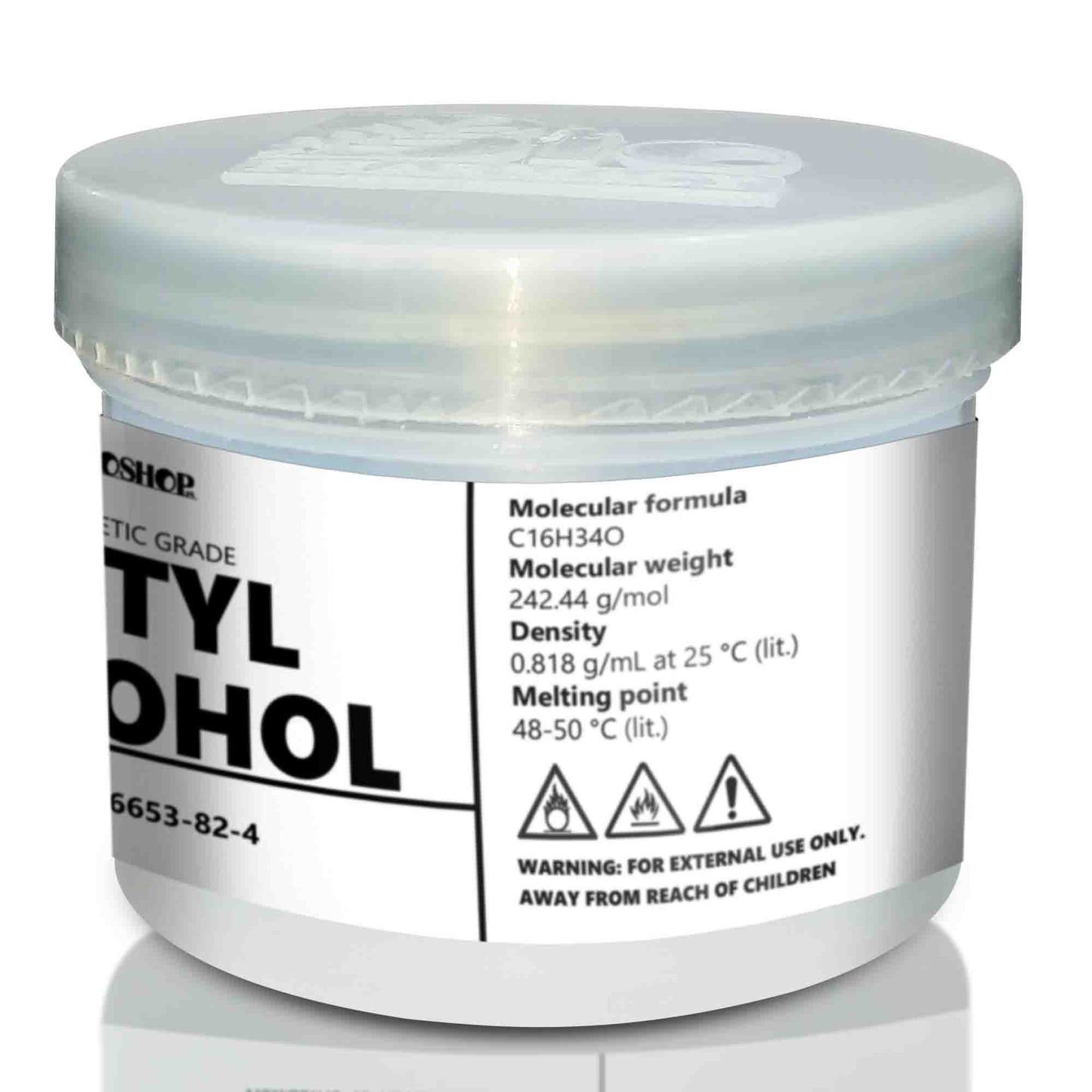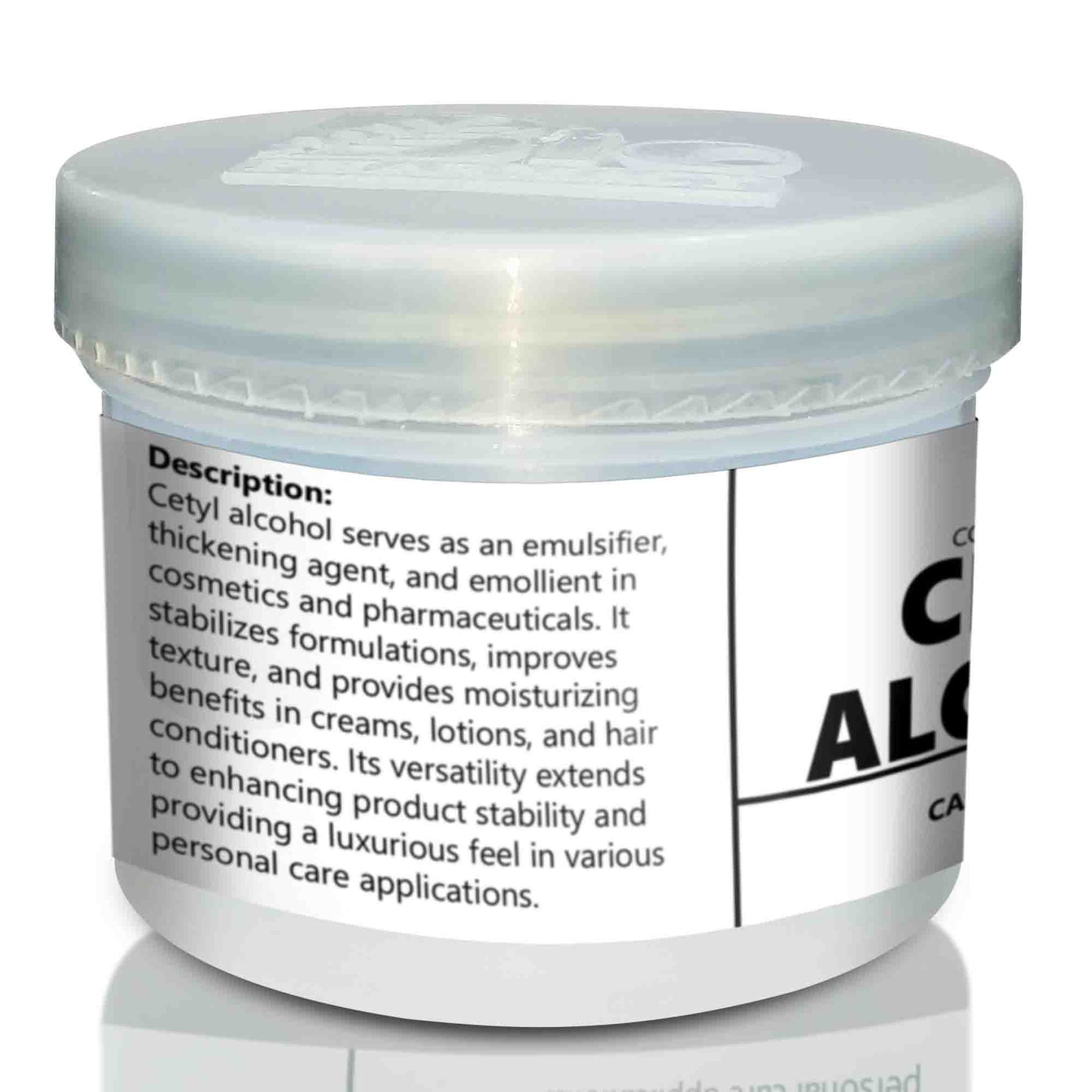Bio Shop
Cetyl Alcohol
Cetyl Alcohol
Key Functions: Acts as a thickener, co-emulsifier, and emollient in both oil- and water-based cosmetic systems.
Pickup available at A. Rehman
Usually ready in 24 hours
Explore
Information About Cetyl Alcohol
✅ Key Features
- Increases viscosity and improves product texture
- Gives soft, velvety after-feel without greasiness
- Stabilizes emulsions and prevents separation
- Acts as a secondary emulsifier in O/W systems
- Improves combability in conditioners and hair masks
🔬 Description
Cetyl Alcohol – Emollient & Thickener for Creams, Lotions & Conditioners
Cetyl Alcohol is a cosmetic-grade fatty alcohol derived from coconut or palm oil, widely used in personal care products for its multifunctional benefits. It acts as a co-emulsifier, stabilizer, and skin-conditioning agent, giving products a smooth, creamy consistency. Unlike drying alcohols, Cetyl Alcohol is non-irritating and moisturizing, making it ideal for dry and sensitive skin products. It also enhances spreadability and texture in lotions, balms, hair masks, and body butters.
📊 Technical Data
INCI Name: Cetyl Alcohol
CAS Number: 36653-82-4
Solubility: Oil-soluble, insoluble in water
Add Phase: Heated oil phase
pH Stability: 4.0 – 8.5
Processing Temperature: 60–75°C
Appearance: White, waxy pellets or flakes
Odor: Slight fatty odor
Molecular Formula: C16H34O
Molecular Weight: 242.44 g/mol
Flash Point: > 150°C
Density: ~0.81 g/cm³
Chemical Type: Fatty alcohol (non-ionic)
Functional Groups: Hydroxyl (-OH)
Primary Cosmetic Uses: Creams, lotions, conditioners, masks, butters
🧪 Recommended Usage
- Usage Rate: 1% – 6%
- Phase: Add to oil phase (melt during heating)
- Ideal For: Lotions, Conditioners, Body Butters, Balms, Hair Masks
💡 Pro Tip
🌿 Blend Cetyl Alcohol with emulsifying wax to create stable emulsions with a buttery texture that won't separate — perfect for thick creams or whipped balms.
👩🔬 Skin Type Compatibility
✔️ Excellent for dry, normal, and sensitive skin
✔️ Safe for baby care and hypoallergenic products
✔️ Non-comedogenic and non-irritating
🧴 Formulation Ideas
✔️ Excellent for dry, normal, and sensitive skin
✔️ Safe for baby care and hypoallergenic products
✔️ Non-comedogenic and non-irritating
💧 Cosmetic Suitability:
Serums
⭐☆☆☆☆ – Poor
🟥⬜⬜⬜⬜ – Not suitable for aqueous or thin serums.
Creams & Lotions
⭐⭐⭐⭐⭐ – Excellent
🟩🟩🟩🟩🟩 – Adds viscosity, texture, and stability.
Toners
☆☆☆☆☆ – Not Suitable
🟥⬜⬜⬜⬜ – Not compatible with water-based sprays.
Face Masks
⭐⭐⭐⭐☆ – Good
🟩🟩🟩🟩⬜ – Helps cream masks hold shape and spread easily.
Cleansers
⭐⭐⭐⭐☆ – Good
🟩🟩🟩🟩⬜ – Softens and conditions in cream and balm cleansers.
Hair Masks
⭐⭐⭐⭐⭐ – Excellent
🟩🟩🟩🟩🟩 – Improves feel, slip, and structure.
Deodorants
⭐⭐⭐☆☆ – Moderate
🟧🟧🟧⬜⬜ – Suitable in stick and cream deodorants.
Eye Creams
⭐⭐⭐⭐☆ – Good
🟩🟩🟩🟩⬜ – Non-irritating and stabilizing.
Shampoos
⭐☆☆☆☆ – Poor
🟥⬜⬜⬜⬜ – Rarely used in clear shampoo formulations.
Soaps
⭐⭐☆☆☆ – Fair
🟧🟧⬜⬜⬜ – Can be used in syndet bars or melt-and-pour bases.
Conditioners
⭐⭐⭐⭐⭐ – Excellent
🟩🟩🟩🟩🟩 – Enhances slip, creaminess, and application.
Lip Balms
⭐⭐⭐⭐☆ – Good
🟩🟩🟩🟩⬜ – Adds silky smooth feel and soft texture.
Body Butters
⭐⭐⭐⭐⭐ – Excellent
🟩🟩🟩🟩🟩 – Key structuring agent for thick body butters.
Ointments
⭐⭐⭐⭐☆ – Good
🟩🟩🟩🟩⬜ – Works as a mild thickener in therapeutic bases.
❓ FAQs
Q1: Is Cetyl Alcohol drying like ethanol?
A1: No — it's a fatty alcohol and acts as a moisturizer, not a drying agent.
Q2: Can it be used in cold-process products?
A2: No — it needs to be melted during the oil phase in hot processing.
Q3: Is it vegan?
A3: It can be derived from coconut or palm, so confirm the source if vegan certification is required.
📂 Documentation
Upon request, we will provide.
Where Can You Safely Use Cetyl Alcohol
Discover how Cetyl Alcohol performs across different products — rated for safety, stability, and effectiveness.







